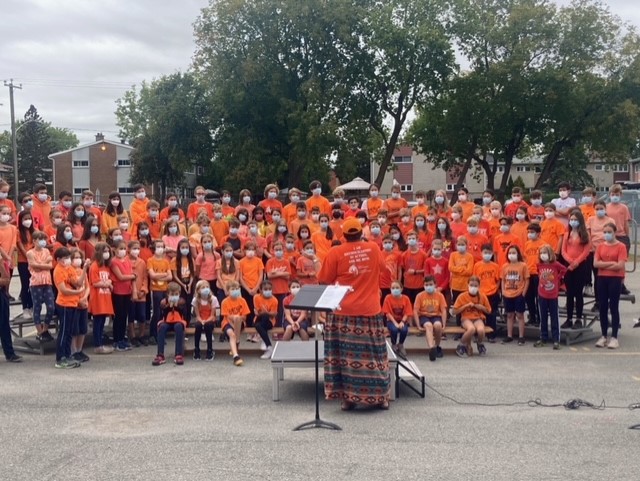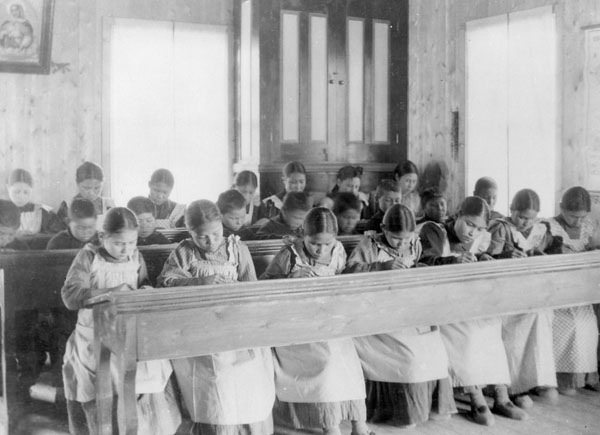
Orange Shirt Day has been marked across Canada for the last few years to raise awareness about the tragic legacy of Canada’s residential schools — places where, for decades, Indigenous children were taken from their homes, their parents, and their cultures and languages. With the horrific discoveries of thousands of bodies of children at the former sites of several schools this past spring and summer, many Canadians learned for the first time that the residential school system even existed.
Orange Shirt Day commemorates the story of Phyllis Webstad, a residential school survivor from the Canoe Creek Indian Band in British Columbia. On her first day of residential schooling, when she was a 6-year-old in the mid-1970s, the nuns that ran the school forced her to remove the new orange shirt her grandmother had given her, and to put on a school uniform. Since the story became widely known, the orange shirt has become symbolic of the legacy of forced assimilation, but also a symbol of resiliency and reaffirmation.
The Skàtne Entewathahìta (“We Will Walk Together” in Mohawk) Orange Shirt Day event began at McGill’s Faculty of Education in 2019. This year’s third annual event will take place on Thursday, September 30, as a part of the Trudeau government’s newly designated federal statutory holiday. To follow all the day’s events at McGill marking the National Day for Truth and Reconciliation, click here.
Hope and healing

“The theme this year is Hope and Healing,” says Claudia Mitchell, a professor with the Department of Integrated Studies in the Faculty of Education and one of the event’s co-organizers, along with Mindy R. Carter, an Associate Professor with the Faculty of Education. “It’s to really highlight the reflection that’s so necessary right now, but also this idea of emphasizing hope when considering a way forward.”
”To hope requires one to actively be involved in the process of renewal, healing, learning multiple truths, stories, and counter-stories when thinking about reconciliation,” says Carter. “The education panel is meant to give people some education around the TRC — and so the storytelling part of this will be very, very important — but also this idea that we’re trying to move forward together, that’s really an important part of this.”
Student-led march begins on McTavish
Beginning at 10 a.m., the Faculty of Education will host a virtual panel that will be led by Elder Geraldine Standup (Traditional Healer, Kahnawà:ke), along with two other Kahnawà:ke residents, Tom Dearhouse and Ron Boyer. Nina Segalowitz, an Inuit throat singer, will also be performing a song with students from St. Edmund’s from their original musical “Reconciliation,” coordinated by their music teacher Jennifer Hayden-Benn, a McGill Faculty of Education MA graduate.
At noon, a student-led walk is set to begin on McTavish St., which will join walks from other groups, including the Native Women’s Shelter. The Orange Shirt Day walks are set to finish at Place du Canada.
